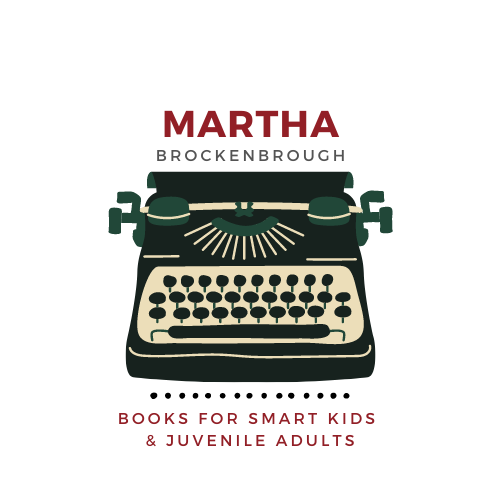 Jack GantosI once knew this celebrity journalist who, when she met George Clooney for the first time, started crying and couldn't get a word out, which is a problem for an interviewer. Finally, to break the awkwardness, Clooney kissed her. This is a genius way to get Clooney to kiss you, I suppose, even if you know he's never going to commit.
Jack GantosI once knew this celebrity journalist who, when she met George Clooney for the first time, started crying and couldn't get a word out, which is a problem for an interviewer. Finally, to break the awkwardness, Clooney kissed her. This is a genius way to get Clooney to kiss you, I suppose, even if you know he's never going to commit.
Jack Gantos is my George Clooney, although I'd definitely settle for a demure yet firm handshake next time I see him.
Jack writes everything: picture books, middle grade novels, YA novels, adult novels. And everything he writes has this spectacular gothic sheen to it. He's funny, sometimes dark, deeply humane, and so darned elegant in his structure and style. Please do yourself a favor and read his books. All of them.
It's no wonder he's won a Newbery (for DEAD END IN NORVELT), a Printz Honor (HOLE IN MY LIFE), a National Book Award finalist spot (JOEY PIGZA SWALLOWS THE KEY), and a Newbery Honor (JOEY PIGZA LOSES CONTROL).
There are more awards, but I'm crying too uncontrollably to type. Also? My hands are covered in paraffin because to do this interview with Jack, I channeled the spirit and hairdo of Miss Volker from NORVELT and its sequel, FROM NORVELT TO NOWHERE.
Jack is one of the keynote speakers at the SCBWI conference in New York in February. You won't want to miss him. Meanwhile, learn a bit about how he works, how he revises, and how he'd like to be remembered when someone finally does slip him a poisoned cookie.
 Miss Volker
Miss Volker
You didn’t turn out as badly as I feared. Probably because I cured your nosebleeds. You wasted a lot of time bleeding, you know. Speaking of wasting time, how do you avoid it and get your work done? As I recall, you preferred gunplay and the like. What’s a typical Jack Gantos day?
The first thing I practice is leaving the house and going to the library on my writing days. This has been my routine for decades and it continues to work. If I stay home I am entirely distracted by the cats and mail and email and food and gardening and all manner of distractions (no more silly gunplay) that I foolishly indulge in. So I pack up my work/writing bag each morning and leave the house for a good eight/ten hour session of writing and rewriting and reading and research and chatting up all my favorite librarians. I try to push the book forward each day—even on conflicted days when I’m off speaking across the country or internationally. I take notes on the stray thoughts that occur to me when I travel, and quite often it is these random thoughts which turn out to be the gems. Plus, I always travel with manuscript and can always find time to closely read through a handful of pages and mark them up—over and over—until they are fully decorated in red ink.
I’ve heard tell you write 100 drafts of your books. Why don’t you just get it right the first time? What are you hoping to accomplish by continuing to lurk around your manuscripts like some sort of Mr. Spizz? Why can’t you leave the poor pages alone?
I wish I could get it right the first time, but I’m not that smart, and I find that with each pass I find a way to pair up sympathetic ideas and images, or events and emotional responses, or improve the pace and crack of the dialog, and so much more. There are infinite improvements I can make to each book. We all have “blind spots” when we write—especially in the beginning when I’m just desperately trying to get the narrative action of the story to reveal itself. Once I get that physical surface of the story set, then the rewrites are just me spelunking  Oh, look. The Gantos boy gave me a nosebleed, which only makes sense if you've read DEAD END IN NORVELT, and even then, only a little. But here's to nosebleeds. between each word, each thought, each crack in the narrative as I begin to layer in vertical depth to the action, themes, characters and décor. I love finding all the words that play hide and seek with me.
Oh, look. The Gantos boy gave me a nosebleed, which only makes sense if you've read DEAD END IN NORVELT, and even then, only a little. But here's to nosebleeds. between each word, each thought, each crack in the narrative as I begin to layer in vertical depth to the action, themes, characters and décor. I love finding all the words that play hide and seek with me.
What do you hope the first line of your obituary reads?
“We think he is dead. But it is hard to tell as his books live on, and he always said he would run away some day and hide between the pages dressed in a costume of odd punctuation while crouching behind a shrubbery. “No one will ever find me,” he boasted. Thus far, those who know him are satisfied with this outcome.”
For more about the great Jack Gantos, please visit his website.
Here's an interview on Seven Impossible Things.
And a video on journaling, which is a big part of his writing process.
